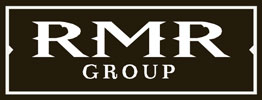Many milestones in a construction project are established or acknowledged through certification by a third party designated by the project owner. This individual, stipulated in the construction contract, is typically the project architect or engineer. It may be a different owner’s representative. But the operative word is owner’s representative.
The denial of certification or a delay in certification can be very costly for a contractor. The contractor, however, has very little influence over or leverage with the certifier. The certifier is the agent of the owner with a duty to protect the owner’s interests. The certifier has few obligations to the contractor, possibly just the obligation to avoid bad faith or fraud.
The nature of this relationship was illustrated in a couple of recent court opinions, one involving a project engineer and the other a construction manager. In both cases it was ruled that the owner’s representative could not be sued by a contractor for delay damages allegedly incurred as a result of project mismanagement. Any duty to the contractor would conflict with the rep’s obligation to protect the interests of the project owner. The contractor can sue the owner for breach of the construction contract. But the owner’s representative, as a disclosed agent operating with the authority of the owner, is virtually untouchable.
